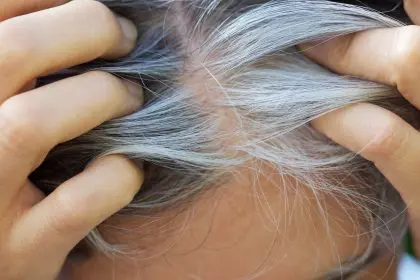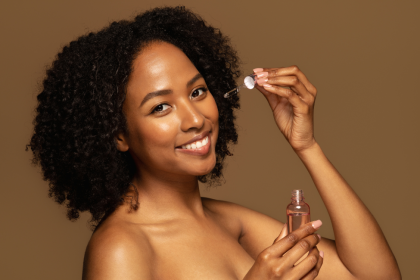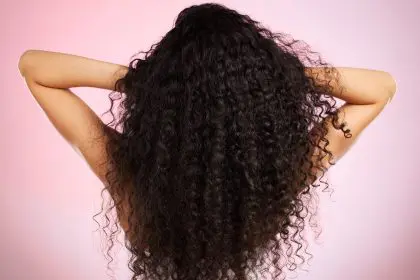
The science behind fasting’s impact
Recent research published in Cell has uncovered an unexpected connection between intermittent fasting and hair growth. The study sheds light on how fasting periods affect hair follicle behavior, offering fresh insights into the way dietary habits influence physical health. Approximately 13% of Americans practice intermittent fasting, and these findings suggest a need for closer examination of the potential side effects of such eating patterns on overall health, especially on hair.
Understanding the growth disruption
Hair growth involves complex biological processes, and recent research demonstrates how intermittent fasting can disrupt these processes. Key changes in metabolic function and oxidative stress have been linked to slower hair growth, particularly in those who follow prolonged fasting schedules.
Oxidative stress and its effects on follicles
Oxidative stress, which occurs when there is an imbalance between free radicals and antioxidants, increases during fasting periods. This stress impacts hair follicle stem cells, affecting their ability to regenerate effectively. Over time, this imbalance can lead to weaker hair strands and thinner growth. Though oxidative stress is a natural part of fasting, its cumulative effect on hair health can result in visible signs of slower growth or thinning.
Metabolic shifts and follicle function
Intermittent fasting causes the body to shift from burning glucose to utilizing fat as its primary energy source. This metabolic shift may have unintended consequences for hair follicles, which depend on stable nutrient availability for optimal functioning. The reduction in available glucose, especially in longer fasting windows, may impair the follicles’ regenerative capabilities, leading to a noticeable reduction in hair growth rates.
Disruption of hair growth cycles
Hair growth follows a cyclical process involving three main stages: anagen (growth), catagen (rest), and telogen (shedding). Intermittent fasting has been shown to disrupt this natural cycle, particularly by shortening the anagen phase, which is the critical period for hair growth. The result is a slower rate of new hair production and a possible increase in the shedding phase, leading to thinning or hair loss.
Clinical evidence emerges
Human trials have provided compelling evidence that intermittent fasting impacts hair growth. In a study involving 49 participants, researchers monitored hair growth rates before, during, and after fasting periods. The findings were startling: there was an 18% reduction in hair growth observed, with significant variations among individuals depending on the duration and frequency of fasting.
The correlation between fasting and growth inhibition
The study revealed that individuals who fasted for extended periods or engaged in frequent intermittent fasting experienced a clear correlation between fasting duration and hair growth inhibition. This suggests that longer or more frequent fasting periods may have a more pronounced effect on hair growth, with some participants experiencing noticeable thinning or slower growth compared to others. It’s important to note that the reduction in hair growth was not universally experienced, highlighting the individual nature of hair health and the varying effects of fasting on different people.
Understanding individual responses
While the majority of participants experienced slower hair growth, significant differences in individual responses were noted. Factors such as age, overall health, and pre-existing hair conditions contributed to these variations. Younger participants and those with healthy scalp conditions showed less impact from intermittent fasting, while older individuals or those with already thinning hair experienced more noticeable slowdowns in growth. These differences underscore the importance of personalized nutrition and health management when adopting fasting practices.
Maintaining hair health while fasting
For those who practice intermittent fasting and want to preserve their hair health, experts recommend several strategies for ensuring that hair follicles receive the necessary nutrients to maintain optimal growth.
Strategic nutrient intake during eating windows
During the eating windows of intermittent fasting, it’s essential to prioritize nutrient-dense foods that support hair health. Nutrient timing can play a significant role in ensuring the body has the necessary fuel to support hair growth. Here are some critical nutrients to consider:
Complete proteins for follicle maintenance
Proteins are vital for the maintenance of hair follicles, as hair itself is made up of keratin, a protein. Consuming complete proteins during eating windows, such as lean meats, eggs, or plant-based proteins like quinoa and soy, helps provide the building blocks necessary for hair regeneration.
Key vitamins supporting growth cycles
Vitamins such as B-complex vitamins, particularly biotin, and vitamin D play significant roles in the hair growth cycle. Biotin is essential for the production of keratin, while vitamin D is linked to the creation of new hair follicles. Ensuring an adequate intake of these vitamins can help mitigate the potential negative effects of fasting on hair growth.
Crucial minerals for proper function
Minerals like zinc, iron, and magnesium are essential for hair health. Zinc, in particular, is crucial for maintaining a healthy scalp, while iron helps prevent hair shedding caused by deficiency. Magnesium supports overall metabolic function, and when combined with other minerals, these nutrients can aid in the maintenance of healthy hair follicles during fasting periods.
Essential fatty acids promoting scalp health
Essential fatty acids, such as omega-3s found in fish, flaxseeds, and walnuts, are vital for maintaining a healthy scalp environment. These fats help nourish the scalp, reduce inflammation, and support the hair’s ability to grow at a healthy rate. They are especially important for individuals who engage in fasting, as they help combat any dryness or irritation that may arise from dietary restrictions.
Conclusion
While intermittent fasting has gained significant popularity for its weight loss and metabolic benefits, recent studies suggest that it may come at a cost to hair health. Understanding the complex relationship between fasting and hair growth is essential for those considering this dietary approach. Through strategic nutrient intake and careful monitoring of fasting practices, it is possible to maintain both overall health and healthy hair growth. As more research emerges, individuals can make informed choices about how to balance fasting with the need to preserve hair health.














